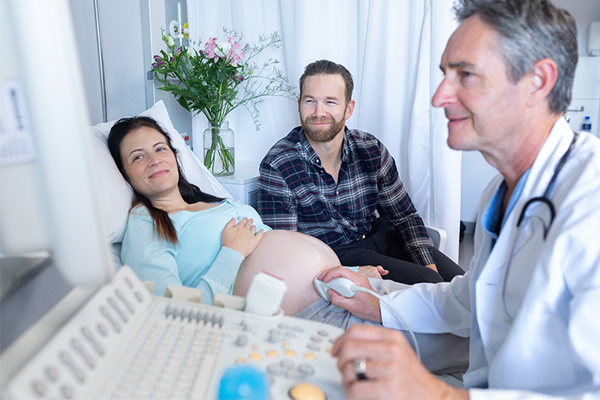Women who suffer from epilepsy — a neurological disorder marked by sudden, recurrent seizures that are associated with abnormal electrical activity — have a lot to consider. Those concerns range from the impact of hormones on seizures, choosing seizure medications and birth control, pregnancy, parenting, menopause, bone health and more. That’s why Dr. Debra Moore-Hill, a physician with Augusta University Neurosciences Center of Excellence, offers a clinic dedicated to women and the issues they face with epilepsy, just one of them being pregnancy.
Identifying and satisfying a need
Moore-Hill is one of only two adult epileptologists in the area, both of whom are at Augusta University, whose epilepsy program holds level 4 status, the highest accreditation possible, for its comprehensive adult and pediatric epilepsy program. She started the clinic, the only one in the area and the second in Georgia, earlier this year after seeing a need from her female patients of childbearing age. Surprisingly, these patients were never advised on family planning while managing epilepsy.
They also held the mistaken belief that pregnancy should be avoided entirely and, therefore, feared it.
“It is possible to have healthy children,” Moore-Hill said. “We counsel women so they have the information and tools necessary for a healthy, less worrisome pregnancy.”
A proactive approach
Moore-Hill, a mother herself, counsels female epilepsy patients of all ages regarding their family planning considerations. It’s important to do this as early as possible, ideally before conception, for the following reasons:
- Anti-seizure medications can cause oral contraceptives to become less effective.
- Anti-seizure medications can cause birth defects, and dosage needs to be adjusted based on the patient’s weight, which changes during and after pregnancy.
- Seizures during pregnancy can harm the baby.
“I work to counsel them on how epilepsy and the treatments affect pregnancy and motherhood, and vice versa, and inform them of their options,” Moore-Hill said. “My patients are critical in the decision-making process.”
Moore-Hill sees pregnant patients at least monthly, depending on level of seizure control, to make proactive changes to the course of treatment. As an academic health center that’s equipped with the latest technology, patients can also benefit from the epilepsy monitoring unit for observation. This ensures the ultimate goal: that our patients remain seizure-free. Moore-Hill carries that a step farther by helping her patients to make the dream of having children a reality.
“It’s not just about epilepsy in my clinic,” Moore-Hill said. “We talk about their vacations, careers and families. After all, epilepsy affects all of these things.”





